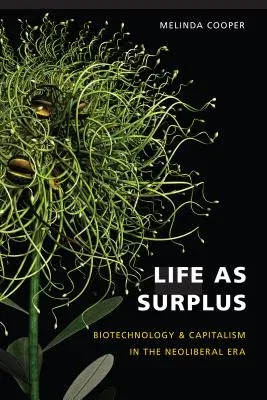Focusing on the period between the 1970s and the present, Life as
Surplus is a pointed and important study of the relationship between
politics, economics, science, and cultural values in the United States
today. Melinda Cooper demonstrates that the history of biotechnology
cannot be understood without taking into account the simultaneous rise
of neoliberalism as a political force and an economic policy. From the
development of recombinant DNA technology in the 1970s to the second
Bush administration's policies on stem cell research, Cooper connects
the utopian polemic of free-market capitalism with growing internal
contradictions of the commercialized life sciences.
The biotech revolution relocated economic production at the genetic,
microbial, and cellular level. Taking as her point of departure the
assumption that life has been drawn into the circuits of value creation,
Cooper underscores the relations between scientific, economic,
political, and social practices. In penetrating analyses of Reagan-era
science policy, the militarization of the life sciences, HIV politics,
pharmaceutical imperialism, tissue engineering, stem cell science, and
the pro-life movement, the author examines the speculative impulses that
have animated the growth of the bioeconomy.
At the very core of the new post-industrial economy is the
transformation of biological life into surplus value. Life as Surplus
offers a clear assessment of both the transformative, therapeutic
dimensions of the contemporary life sciences and the violence,
obligation, and debt servitude crystallizing around the emerging
bioeconomy.

